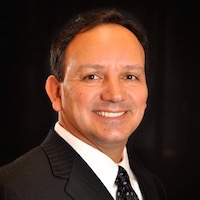The Art of Affluence
A few weeks ago in a karate class I heard a marvelous Zen story that spoke to the incessant yearning we all feel from time to time to be more, do more, and have more. This desire at times gives us the strength we need to power through some of life’s most imposing obstacles. At other times, it has a way of creating obstacles of its own. How can we use our aspirations in ways that work for us, and help others in the process? That is the subject of an article called The Art of Affluence that I wrote for my February ezine. Below is an excerpt with a link to the full article. I hope you enjoy it!
A wise master was walking along the sandy banks of a lazy river, breathing deeply, enjoying the feel of sunshine on his skin, and taking in the beauty all around him. Just across the river one of his students was walking anxiously back and forth, scanning the perimeter of the river and the surrounding land. When the student saw his master, he began waving his arms and shouting, “Master! Master!” The Master looked up and waited silently for his student to continue. “Master,” said his student, “How do I get to the other side?” The master simply replied, “You are already there!”
One of the many things this Zen story speaks to is the desire we all have to be more, do more, and have more. And one thing people throughout history can’t ever seem to get enough of is money.
Wealth has been used as a scorecard for success throughout the ages. From its conception, its lure has led many to do things that are not in the best interests of others. We have been conditioned to believe that it is the key to freedom, happiness, and security. People often take jobs that are not truly aligned with their talents because they fear that without them, they will not have the money they need to satisfy their basic needs. Many seek positions of leadership because of the increased pay it has to offer and all the things they could buy as a result.
Money has also allowed organizations and people to expand their level of influence, improve the quality of services and products they offer, and attract key talent that will allow their visions to become reality. It allows programs to be created and perpetuated that improve the quality of life within communities and the world at large. It pays our bills and puts food on the table. And it allows us to travel and buy things of beauty and utility that can become the source of inspiration and joy.
There is nothing wrong with wealth, just as there is nothing wrong with prestige, power or pride. The key is the manner in which these needs are met, and where the desire for them originates. If the aspiration is for a greater purpose – one that is not solely self serving, the desire is aligned with a higher good and the resulting outcome will be as well.
If the motive is not in the best interests of others, it is more aligned with ego and likely to lead to objectionable behavior, such as greed, envy, insensitivity, arrogance, and paranoia. Those who attain what they seek in an effort to serve others are far more likely to sustain it. Those whose motives and tactics are more aligned with serving themselves alone will live in fear of the inevitable loss of their fleeting success.
Often people are drawn to formal positions of leadership for what they have to offer – power, control, prestige, and higher pay. These things feed the ego, which would have us believe our inherent value is equated with them and that the more we have, do or achieve, the more successful we are. The problem is that no matter how much power, control, prestige, and money we acquire, it never seems to be enough. Life becomes a series of races, battles, and games to be won with little time left to savor the victories, which are often short lived. Click here for the full article.
If you’d like to receive new articles each month as soon as they are published, go to www.DianeBolden.com to subscribe. You will also receive my free report on 10 Traps Leaders Unwittingly Create for Themselves – and How to Avoid Them.
Copyright Synchronistics Coaching & Consulting 2010. All rights reserved.
